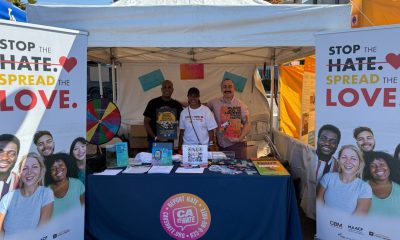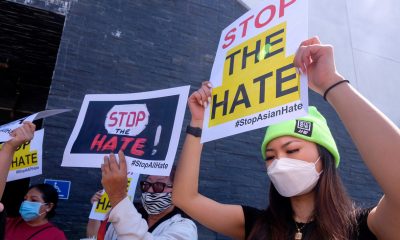National
White US Gunman Caught in Killing of 9 in Black Church
JEFFREY COLLINS, Associated Press
RUSS BYNUM, Associated Press
CHARLESTON, South Carolina (AP) — A white man who joined a prayer meeting inside a historic black church and then fatally shot nine people was captured without resistance Thursday after an all-night manhunt, Charleston’s police chief said.
Dylann Storm Roof, 21, spent nearly an hour inside the church Wednesday night before killing six women and three men, including the pastor. A citizen spotted his car in North Carolina and tipped police, Chief Greg Mullen said.
The chief wouldn’t discuss a motive. Charleston Mayor Joseph P. Riley Jr. called it “pure, pure concentrated evil.” Stunned community leaders and politicians condemned the attack on The Emanuel African Methodist Episcopal Church, and Attorney General Loretta Lynch said the Justice Department has begun a hate crime investigation.
President Barack Obama, who personally knew the slain pastor, state Sen. Clementa Pinckney, said these shootings have to stop.
“At some point, we as a country will have to reckon with the fact that this type of mass violence does not happen in other advanced countries,” Obama said.
Pinckney, 41, was a married father of two who became the youngest member of the South Carolina state House when he was elected as a Democrat at 23.
“He never had anything bad to say about anybody, even when I thought he should,” State House Minority leader Todd Rutherford told The Associated Press. “He was always out doing work either for his parishioners or his constituents. He touched everybody.”
Roof’s childhood friend, Joey Meek, alerted the FBI after recognizing him in a surveillance camera image, said Meek’s mother, Kimberly Konzny. Roof had worn the same sweatshirt while playing Xbox videogames in their home recently.
“I don’t know what was going through his head,” Konzny said. “He was a really sweet kid. He was quiet. He only had a few friends.”
Roof had been to jail: State court records show a pending felony drug case against him, and a past misdemeanor trespassing charge.
He also displayed the flags of defeated white-ruled regimes: a Confederate flag was on his license plate, Konzny said, and a photo on his Facebook page shows him wearing a jacket with stitched-on flag patches from Rhodesia and apartheid-era South Africa.
The shooting evoked painful memories of other attacks. Black churches were bombed in the 1960s when they served as organizing hubs for the Civil Rights movement, and burned by arsons across the South in the 1990s. Others survived shooting sprees.
This particular congregation, which formed in 1816, has its own grim history: A founder, Denmark Vesey, was hanged after trying to organize a slave revolt in 1822, and white landowners burned the church in revenge, leaving parishioners to worship underground until after the Civil War.
This shooting “should be a warning to us all that we do have a problem in our society,” said state Rep. Wendell Gilliard, a Democrat whose district includes the church. “There’s a race problem in our country. There’s a gun problem in our country. We need to act on them quickly.”
“Of all cities, in Charleston, to have a horrible hateful person go into the church and kill people there to pray and worship with each other is something that is beyond any comprehension and is not explained,” Riley said. “We are going to put our arms around that church and that church family.”
NAACP President and CEO Cornell William Brooks said “there is no greater coward than a criminal who enters a house of God and slaughters innocent people.”
A few bouquets of flowers tied to a police barricade outside the church formed a small but growing memorial.
The attack came two months after the fatal shooting of an unarmed black man, Walter Scott, by a white police officer in neighboring North Charleston that sparked major protests and highlighted racial tensions in the area. The officer awaits trial for murder, and the shooting prompted South Carolina lawmakers to push through a bill helping all police agencies in the state get body cameras. Pinckney was a sponsor of that bill.
“I am very tired of people telling me that I don’t have the right to be angry,” Community organizer Christopher Cason said. “I am very angry right now.”
___
Contributors include Alex Sanz, Meg Kinnard and David Goldman in Charleston, South Carolina; Eric Tucker in Washington and Jacob Jordan in Atlanta.
—
This story has been corrected to show Roof’s friend’s mother’s surname is Konzny, not Kozny.
Copyright 2015 The Associated Press. All rights reserved. This material may not be published, broadcast, rewritten or redistributed.
Black History
Martial Artist Victor Moore: An American Karate and Kickboxing Pioneer
Throughout his career, Moore defeated many national champions, including Joe Lewis, Mike Stone, and Bill “Superfoot” Wallace. Moore placed in every tournament he competed in from 1965 until his retirement in 1975, defeating renowned national champions such as Mike Foster, Chuck Norris, Fred Wren, Glenn Keeney, James Hawkes, and Jim Kelly. Moore emphasizes that winning or losing does not diminish a champion’s credibility — they are all champions in his eyes.

By Tamara Shiloh
Victor Moore, born on Aug. 23, 1943, holds a 10th-degree Black Belt in Karate and is a four-time world karate champion.
As one of the chief instructors under Robert Trias in the Shuri-ryu Karate system, Moore was also among the first ten members of the Trias International Society. Over his 50-year martial arts career, he trained in various styles, including Chito-ryu with William J. Dometrich, Judo, Kempo, and Bondo karate.
Moore began his martial arts journey at the age of 7 in Cincinnati, lifting weights and reading Charles Atlas books to guide his training. By age 9, he had learned the basics of jujitsu and judo, and at 12, he began training in Kempo karate under Ronald Williams, who awarded him his first black belt after five years of instruction.
In 1961, Moore expanded his training by joining a judo school led by Ray Hughes and later trained in Gyu Ryu-karate under Harvey Eubanks. He studied Kempo with Bill Dometrich and continued exploring different karate styles. Instructors at the time, required students to start as white belts in each new style, even if they held black belts elsewhere, which shaped Moore’s adaptability.
Chung Ling, an exchange student from China, introduced Moore and others to Chuan Fa, enhancing Moore’s understanding of martial arts. He also took up judo at a school in Cincinnati, where he earned his brown belt, and trained in karate with Jim Wax, who had studied under the Shimabuku brothers. Moore’s toughness was further honed by his boxing experience at the 9th Street YMCA, where he became a sparring partner for Tiger Joe Harris.
At Central State University, Professor Barry Yasuto trained Moore in Shotokan karate, but Moore was denied entry to the Japanese Karate Association, possibly due to his race. After returning to Cincinnati, Moore opened his first karate school and began competing in national tournaments. He traveled across the U.S., eventually meeting Robert Trias, who became his mentor and helped him rise to the second-degree black belt level. Under Trias, Moore continued training in Kempo and Goju-Ryu styles.
Moore also trained under Dr. Maung Gyi, learning Bondo karate, stick fighting, and kickboxing. In 1973, Moore and Joe Lewis introduced kickboxing to America on the Merv Griffin TV show. Moore competed in the first kickboxing tournament in the U.S., facing Jim Harrison in a historic fight.
Throughout his career, Moore defeated many national champions, including Joe Lewis, Mike Stone, and Bill “Superfoot” Wallace. Moore placed in every tournament he competed in from 1965 until his retirement in 1975, defeating renowned national champions such as Mike Foster, Chuck Norris, Fred Wren, Glenn Keeney, James Hawkes, and Jim Kelly. Moore emphasizes that winning or losing does not diminish a champion’s credibility — they are all champions in his eyes.
Moore continues to teach martial arts, working with instructors and students nationwide. His daughters, Vickie and Vonnie, and his son, Vanceston, also train under his guidance.
Activism
Atty Gen Bonta: U.S. Law Mandating Emergency Care to All Patients Faces Threats
The attorney general highlighted that EMTALA is vital for ensuring that no individual is turned away from emergency services based on financial status or insurance coverage. Bonta stated that the law has been a cornerstone of emergency healthcare for decades, providing peace of mind to millions of Americans who might otherwise hesitate to seek urgent medical attention due to cost concerns.

By Bo Tefu, California Black Media
California Attorney General Rob Bonta emphasized the critical need to protect the Emergency Medical Treatment and Labor Act (EMTALA), mandating that hospitals provide emergency care to all patients regardless of their ability to pay.
In a recent statement, Bonta highlighted the potential threats to this essential legislation amid ongoing discussions about healthcare accessibility in the U.S.
“EMTALA ensures that no one is denied access to emergency medical care, including abortion care, and this federal law is more imperative than ever following the overturn of Roe v. Wade,” said Bonta.
The attorney general highlighted that EMTALA is vital for ensuring that no individual is turned away from emergency services based on financial status or insurance coverage. Bonta stated that the law has been a cornerstone of emergency healthcare for decades, providing peace of mind to millions of Americans who might otherwise hesitate to seek urgent medical attention due to cost concerns.
This decision to support the federal government’s case comes at a time when many healthcare providers are facing pressure from rising costs and legislative changes that could undermine existing protections. Bonta called on lawmakers to reinforce EMTALA’s provisions and to combat any efforts aimed at weakening the act, asserting that equitable access to emergency care is a fundamental right.
He urged state and federal governments to ensure that all Americans, particularly marginalized communities, have the necessary access to emergency services without fear of financial repercussions. The brief indicates the coalition’s commitment to healthcare equity, emphasizing that maintaining strong protections under EMTALA is crucial for safeguarding public health.
As discussions around healthcare policy continue, Bonta remains steadfast in promoting initiatives that protect emergency care access, asserting that everyone deserves timely and appropriate medical treatment in emergencies. His efforts align with ongoing legal and advocacy battles to preserve the rights established by EMTALA in the face of evolving healthcare challenges.
#NNPA BlackPress
Why Not Voting Could Deprioritize Black Communities
NNPA NEWSWIRE — President Biden’s Justice40 initiative. This executive order ensures that 40% of federal investment benefits flow to disadvantaged communities, addressing deep-seated inequities.
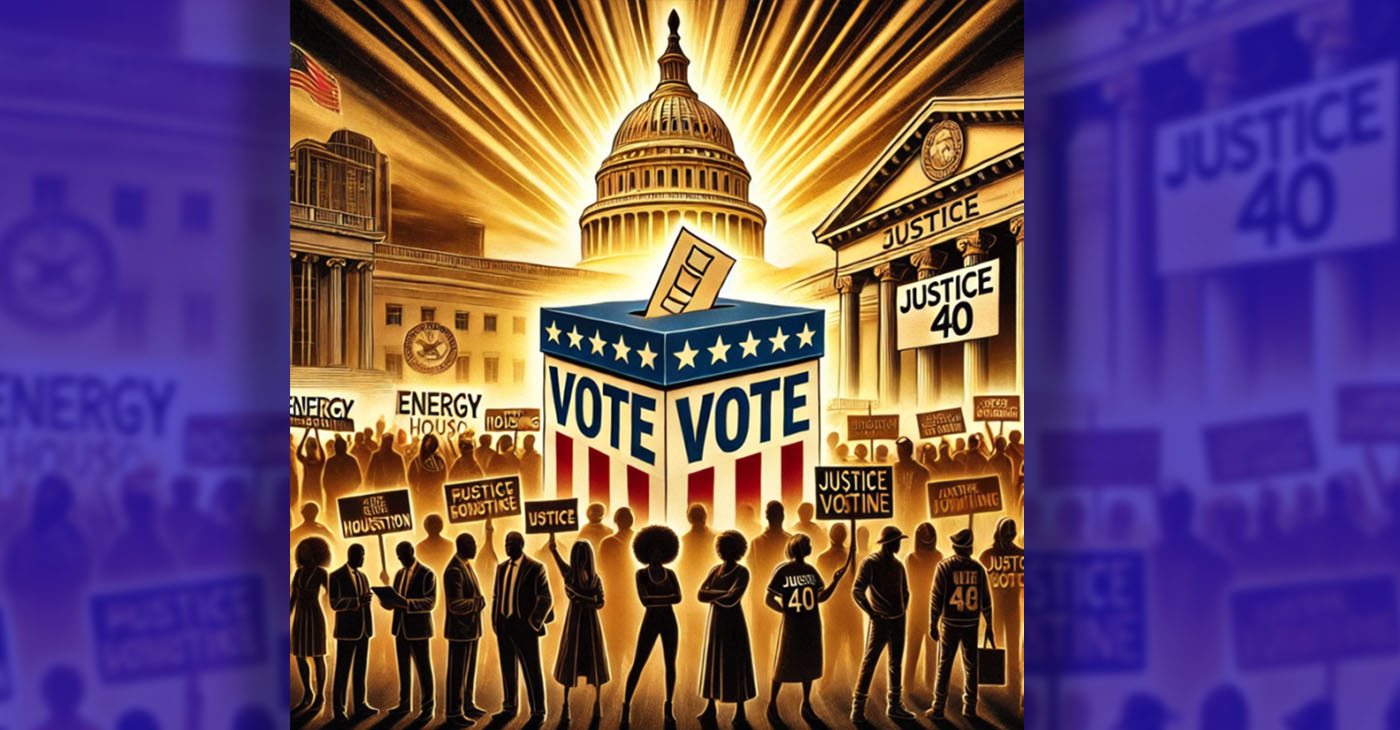
By Anthony Kinslow II, PhD
For generations, Black communities have been systematically denied the resources and opportunities provided to other American communities. Justice40 is more than a Biden-Harris initiative — it ensures a financial commitment to restore communities from historical inequities and bring lasting investment where needed most. It doesn’t matter if you don’t love Vice President Kamala Harris, are skeptical about her policies, or dislike her background as a prosecutor. If we want to see the progress and resources for Justice40 communities continue, we need to vote for her. The stakes in this upcoming election go beyond personal feelings and political preferences. A crucial piece of policy that directly impacts Black communities across the country is on the line:
President Biden’s Justice40 initiative. This executive order ensures that 40% of federal investment benefits flow to disadvantaged communities, addressing deep-seated inequities. Because the initiative was instituted via executive order if we don’t have President Kamala Harris in November, the executive order will likely be struck down. Justice40 touches every federal department—housing, education, transportation, energy, environmental protection, and much more. Using a broad range of metrics to define disadvantaged communities, the program is designed to avoid legal challenges while ensuring that many Black communities benefit from these federal investments.
Despite this historic initiative, much of the progress to implement this initiative could be undone by the results of this election. Justice40 is an executive order, and like all executive orders, it can be canceled with the stroke of a pen by the next president. If a Republican administration takes over, there’s every reason to believe this effort will be scrapped, especially with Trump’s explicit desire to reverse Biden’s policies. This is why we must cast our vote. This isn’t just about a candidate– it’s about securing a future where Black communities are finally prioritized.
In a Harris administration or a continued Biden-Harris presidency, we can expect the Justice40 program to grow and be further institutionalized. This progress has already started slowly but surely in departments such as the Department of Energy (DOE), the Department of Transportation (DOT), the Environmental Protection Agency (EPA), and the United States Department of Agriculture (USDA), with leaders working on systemic change. I know Many of our people in these positions working to make meaningful, lasting changes. This is in stark contrast to Trump’s presidency. While government work is always slow, the groundwork is being laid. For this progress to take root and continue benefiting our communities, voting to preserve it is essential. This is our vote to keep federal funds flowing to our neighborhoods.
SO, VOTE! Together, we can ensure that the Justice40 program continues to grow and uplift communities that have been left behind for far too long.
-

 Alameda County1 week ago
Alameda County1 week agoAlameda County District Attorney Pamela Price Announces $7.5 Million Settlement Agreement with Walmart
-
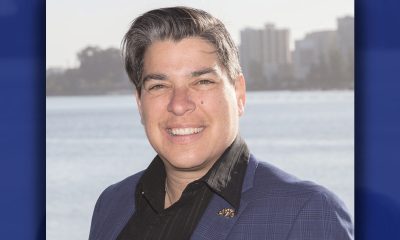
 Activism2 weeks ago
Activism2 weeks agoOP-ED: Hydrogen’s Promise a Path to Cleaner Air and Jobs for Oakland
-
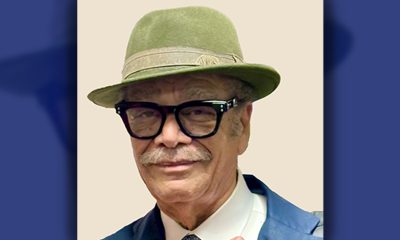
 Activism3 weeks ago
Activism3 weeks agoCOMMENTARY: DA Price Has Done Nothing Wrong; Oppose Her Recall
-

 Activism3 weeks ago
Activism3 weeks agoBarbara Lee, Other Leaders, Urge Voters to Say ‘No’ to Recalls of D.A. Pamela Price, Mayor Sheng Thao
-
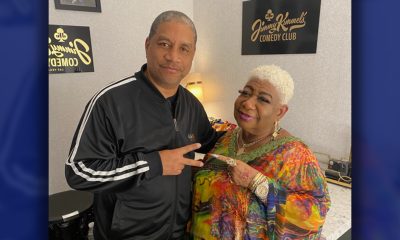
 Community2 weeks ago
Community2 weeks agoTerry T. Backs Oakland Comedy Residency by Oakland’s Luenell at Jimmy Kimmel’s Comedy Club in Las Vegas
-

 Bay Area3 weeks ago
Bay Area3 weeks ago2024 Local Elections: Q&A for Oakland Unified School Candidates, District 3
-

 Activism3 weeks ago
Activism3 weeks agoOakland Post: Week of October 9 – 15, 2024
-

 Business2 weeks ago
Business2 weeks agoStudy Confirms California’s $20/Hour Fast Food Wage Raises Pay Without Job Losses




